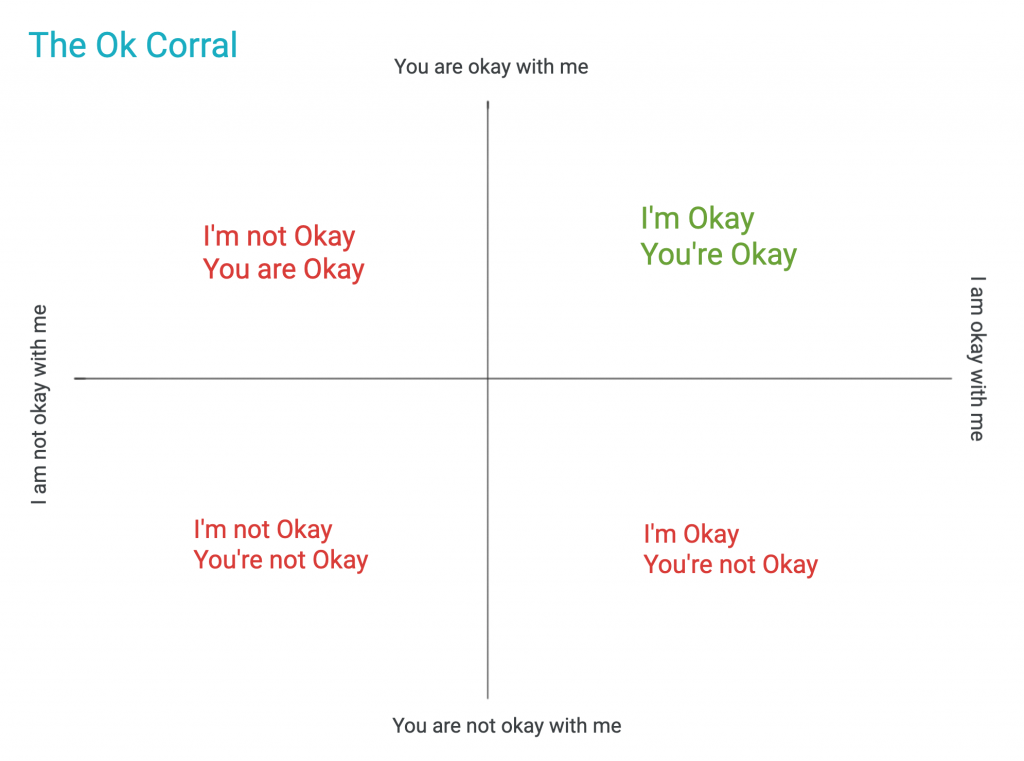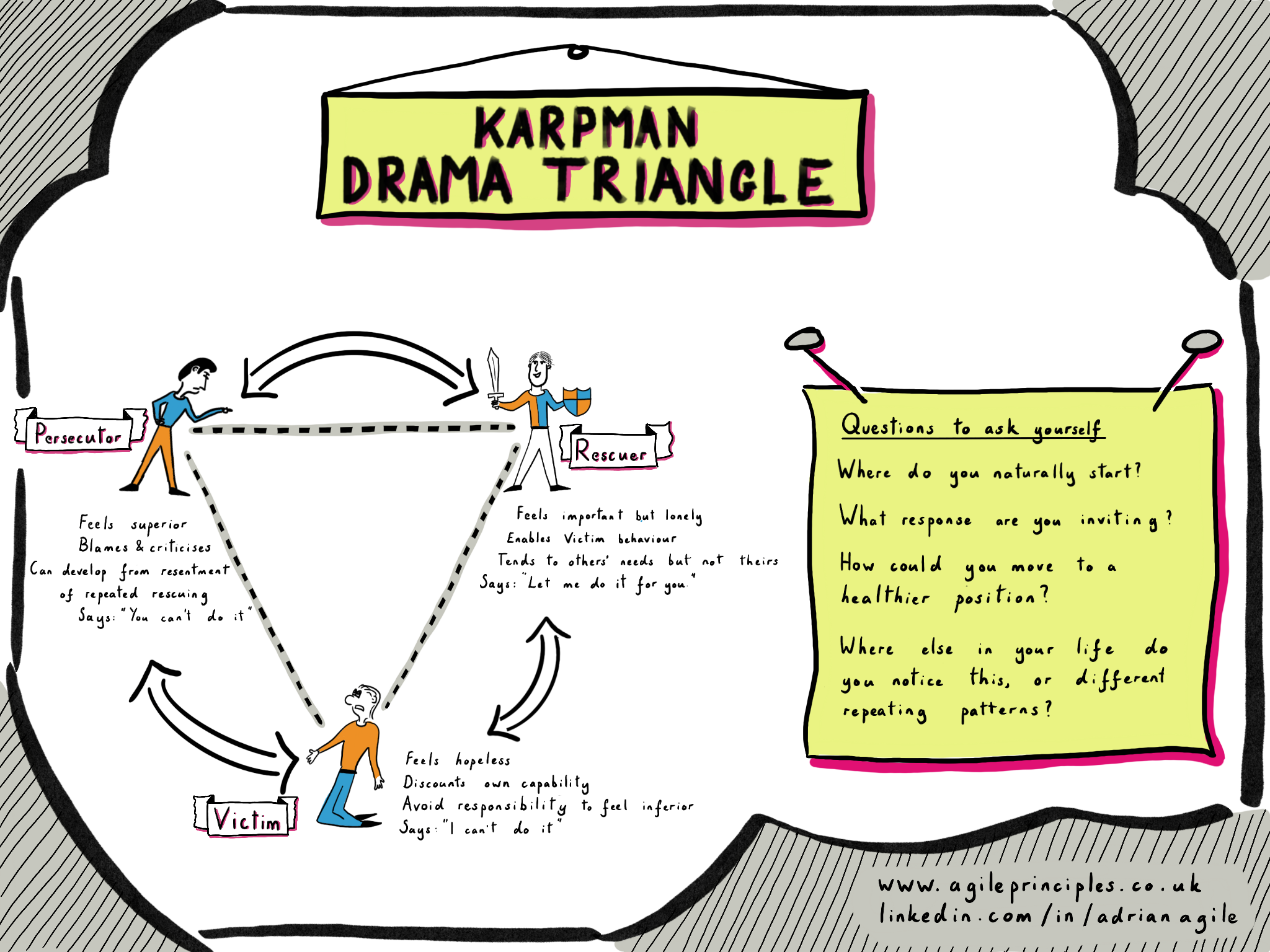Recognise conversation patterns to start to break free
Eric Berne the father of Transactional Analysis devised the concepts of “Games” and took the world by storm with his book: Games People Play back in 1964. It is interesting then that we still walk in to these unhelpful situations repeatedly.
Stephen Karpman evolved this idea when he created the Drama Triangle, which is a great and simple way to recognise when you are in a game and of course noticing where we are is the first step to change.
So what is the Drama Triangle?
There are 3 positions: Persecutor, Rescuer, Victim and while some might sound preferable to others they are all likely to create unexpected results and create unhelpful situations.
In the language of TA, all of these come from a place of where at least one of the people are not “Ok”, as shown on the Ok Corral model.

When considering Transactional Analysis, I find it helpful to consider everything someone says as an invitation to respond in a certain way.
For example, when someone orders you to do something they are inviting you to comply or rebel. When someone asks for someone else to fix a situation for them, they are asking to be rescued or rejected.
“Games” are recognisable patterns that involve starting in one position on the drama triangle and ending in another.
The way that the drama triangle helps is it provides a simple mental model for us to consider to help avoiding these traps.
For example, as a manager a team might ask for you to fix something organisationally. You might do this and feel good about it. However, will you still feel good when the team repeatedly comes to you to solve their problems? Probably not. This is when you flip from being the Rescuer to the Persecutor “My team can’t fix anything for themselves” but of course they were not the only ones in the conversation.

Escaping the Drama
So how could we escape the cycle and repeating patterns of drama in our teams, organisations and lives?
Recognising that you are in an unhelpful pattern is the first step to leaving it.
Do you feel triggered to comply, rebel, blame or rescue?
Slow down. Ask yourself what is the thought behind this response. Is this something that happens regularly? Where does this path lead?
If you have the presence of mind, think about what might be a more helpful belief to hold in your mind that would create a more encouraging and collaborative approach?
Be mindful of the response that you are inviting with your conversation.
One option, if this unhelpful pattern is in a team that you are part of, is to simply share and discuss the Drama Triangle and ask if people recognise any patterns that are developing and reflect on how you could help each other to recognise it and support each other in taking steps to get out of it and back to the space where you can create the conditions where you can all do your best work.
If you can’t do this with your team, then simply reflect after a conversation that left you feeling less than happy and try to look for patterns. Over time as you develop this mental muscle, you will then get better at recognising these as they come up in future.
